The man who captured his life on camera
- Published
The man who captured his whole life in film
In a diary that, until recently, lay wrapped in old clothing in a family shed, Harry Birrell wrote about a universal fear.
"The passage of time often dims the mirror and the memories fade forever, unless some small spark lights the fire again."
It was a line written in 1941 as 23-year-old Harry contemplated his own lost memories, lamenting the events that were "dear to me" but were "fast-fading".
But over his lifetime, Harry's treasured cine-camera became the flint with which he ignited that flame.
Filming at 11
Born in 1918, Harry's formative years were during the "golden age" of film.
He was 15 during the release of the original King Kong and 21 when audiences saw Dorothy step into a world of Technicolor in The Wizard of Oz.
At about age 11, he was gifted the cine-camera by his grandparents, whom he lived with in Stanely House, Paisley after his father died during World War One.
Armed with an obsession for moving pictures, Harry went on to make 400 films of incidents great and small.
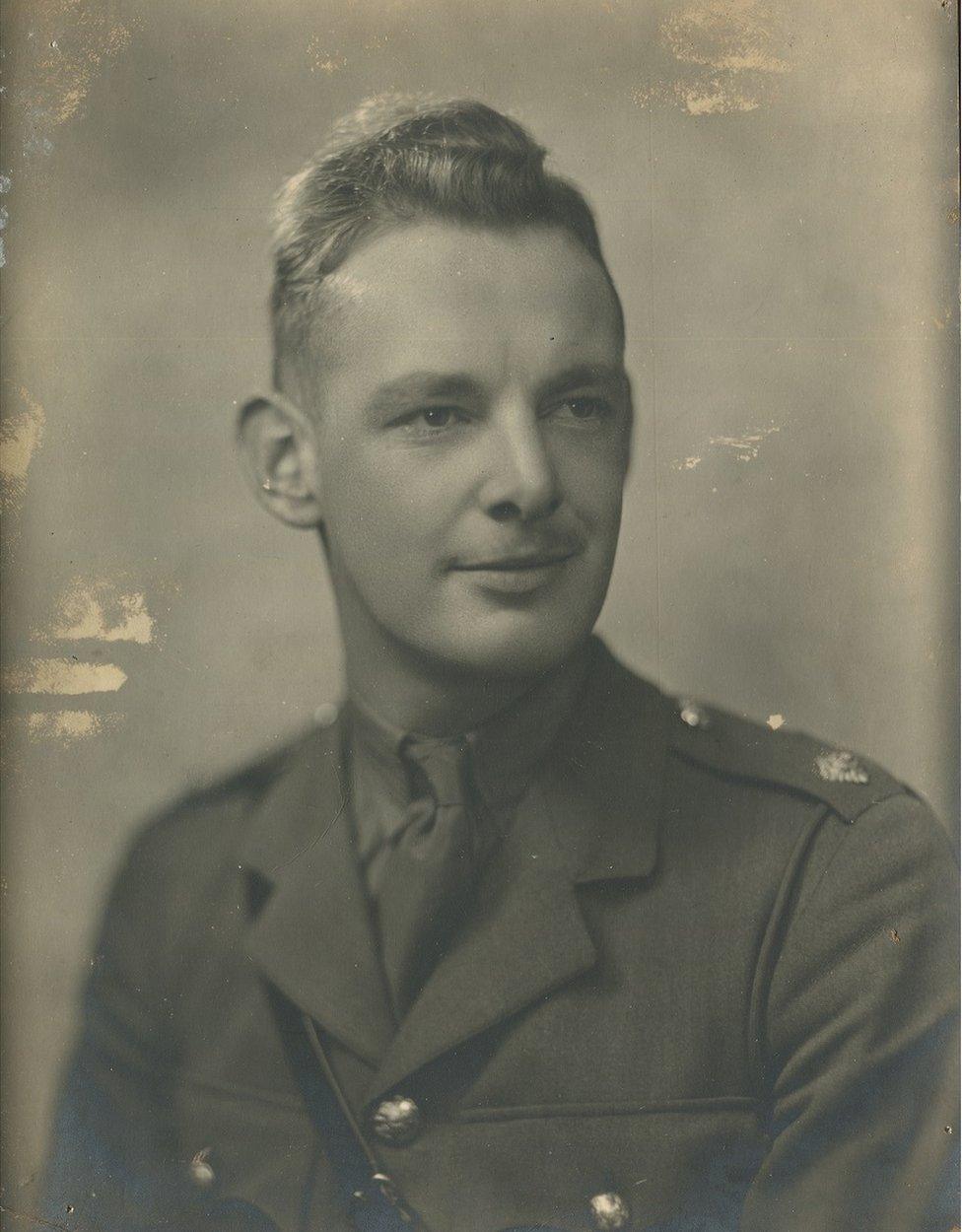
The young soldier was sent to Nepal, Burma and Bombay

Much of his footage was shot in Scotland but he also captured his adventures during wartime in the jungles of Burma, the mountains of Nepal and in Mumbai, then Bombay.
After his death in 1993, age 75, Harry's films were regarded among the best amateur work in Scotland.
Harry joined the army during World War Two and shot life in the barracks and officer cadet training in East Lothian.
At that time he started what would become a collection of diaries, so that his family might have a record of his life if he were killed.
He wrote that he enlisted voluntarily, and took the Oath of Allegiance. In a frank passage, he admits it wasn't for honour or glory - rather it was known that volunteers were promoted more swiftly than those who did not.
His first four months were spent with the Cameronians at the Hamilton barracks in Lanarkshire where, he writes, "all the glamour of war was knocked out of me".
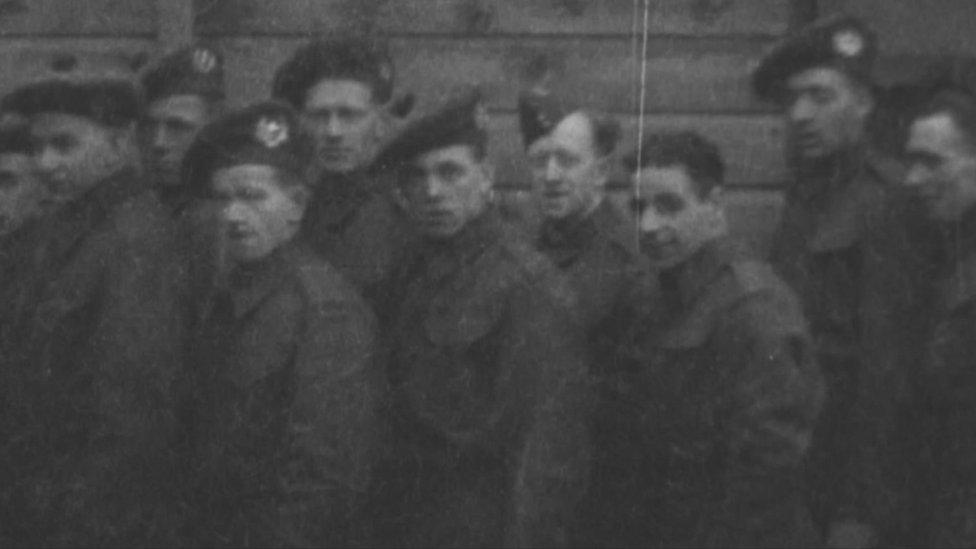
Soldiers in training queuing for food in bitter weather
Army cadet training happened at Dunbar where he describes life as "stiff" as he learned to fend for himself.
Passages from his diaries note the terrors of war, particularly the "terrific scare of invasion when France capitulated".
He and his squad built roadblocks, guarded the coast and were posted in the weapons pit all around the UK.
Later while serving with the 7th Gurkha Rifle Regiment, Harry filmed in Burma, where he was given a small squad of men to explore the region.
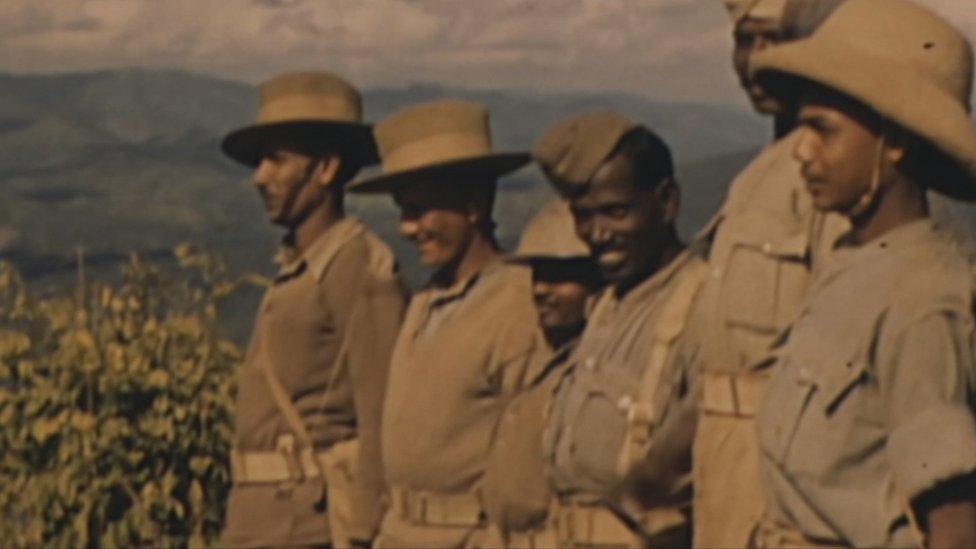
Harry with a small team in Burma
On one mission they were tasked with trudging miles through the jungle in order to update old maps, triangulate enemy gun positions and survey for possible new air fields among other duties.
He described it as "miles and miles of trailing and theodolite work".
But Harry knew how to connect with his men and keep up the team's spirit - he would organise sports days back at camp when there was little to do.
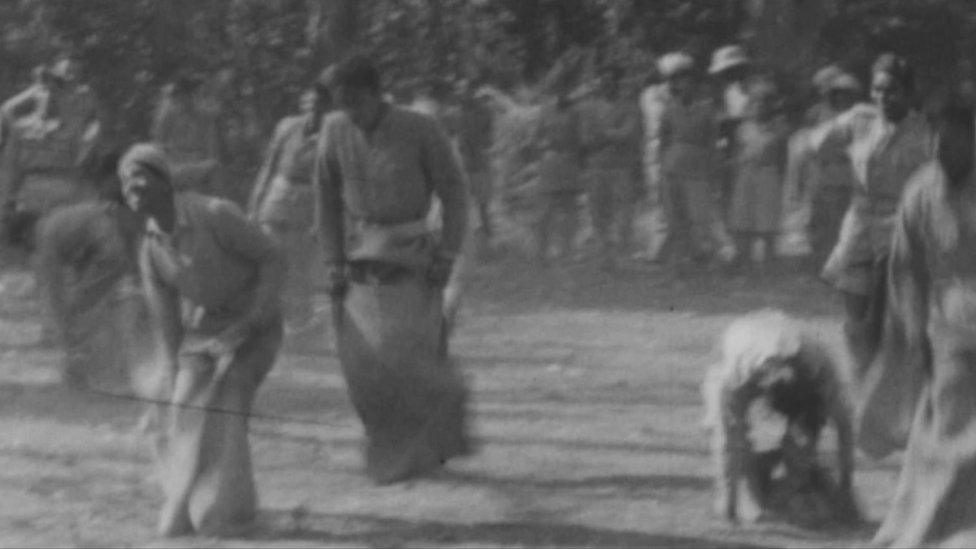
A sports day at an army camp
But the job was not without its excitement.
He wrote his subedar (an officer of a company of Indian soldiers in the British service) was "fascinated" with the idea of riding an elephant, and so the company went out in search of one.
"My subedar, whom I do not think has ever seen one, is thrilled to the back teeth about riding them. He is full of drive and a man with great personality."
On another occasion the group lost their way while trying to find their rest camp, and instead slept out in the open. In the morning they discovered they had been sleeping in a minefield.
"As no-one had stood on a mine, it didn't make much difference," he wrote.
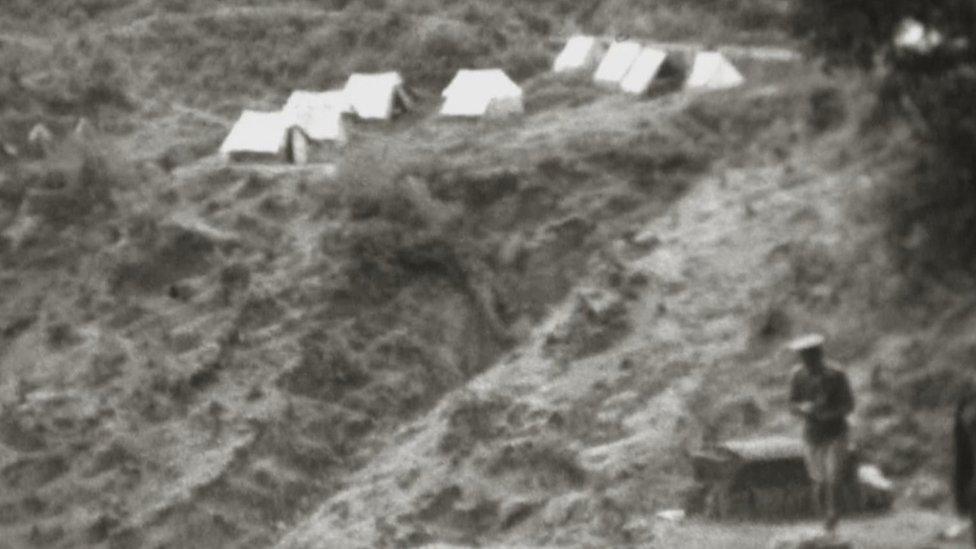
Harry's team camped outdoors in a minefield
When war was over, property surveyor Harry turned his lens to filming scenes in Scotland - his subjects ranging from skiing to the Forth Road Bridge.
His documentaries won several Film Council awards - but it was the approval of loved ones that mattered the most to him.
At his home in Giffnock, near Glasgow, in the 1950s, Harry knocked through two bedrooms to create a fully-furnished home cinema, complete with a balcony, 25 red velvet seats, curtains weighted with lemonade bottles and a big screen. He scoured second-hand shops for authentic cinema paraphernalia.
More than 3,000 visitors used the theatre, which became known as the smallest cinema in Scotland.
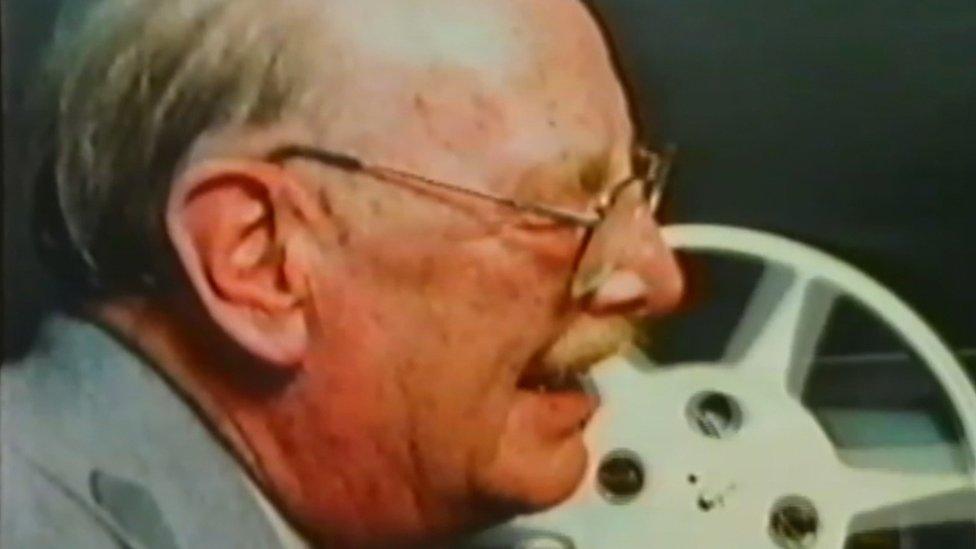
Harry built the smallest cinema in Scotland
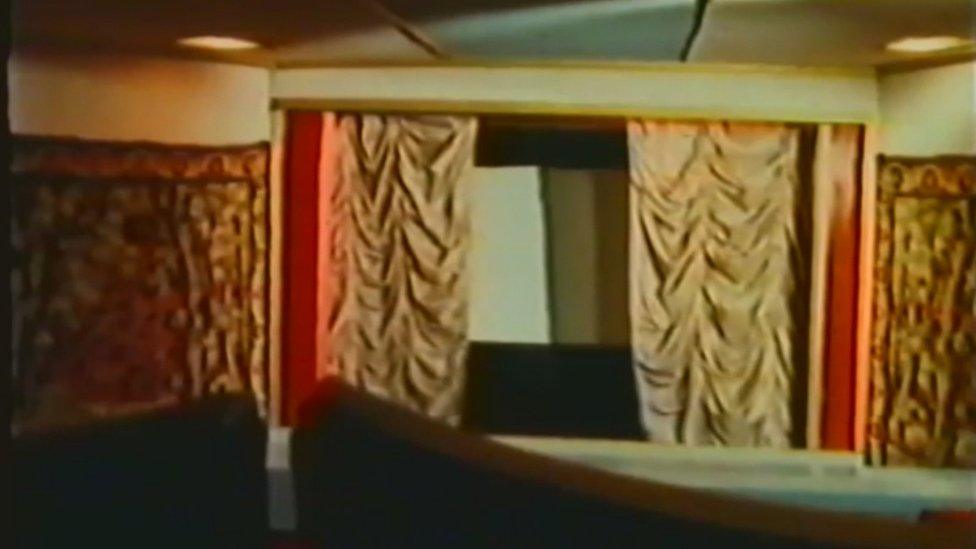
Guests could watch Harry's films at his home in Giffnock
After his death, Harry's reels of film were kept in the family shed alongside his personal diaries for a number of years.
They were eventually unearthed, and filmmaker Matt Pinder transformed the clips into a documentary about Harry's life, entitled Harry Birrell Presents: Films of Love and War.
The film is narrated by Bodyguard star Richard Madden and features Harry's granddaughter Carina who became an actress after watching Harry's films as a child.
It will be screened at the Glasgow Film Festival 2019.
Carina said: "He wanted it to be a document and a record for future generations to see what life was like in a beautiful and objective way.
"One of the beautiful things about his film was he was very objective - even during the war he was filming bits of the opposition and not saying these are the bad guys. He's just saying this is what it was.
"It's always been a dream for me to have it seen in the cinema."